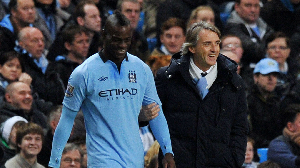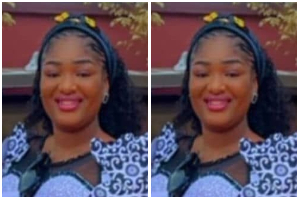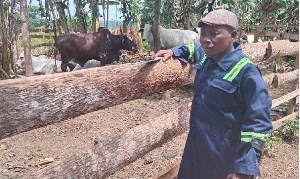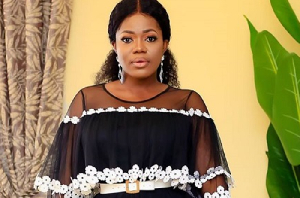The history between Mario Balotelli and Roberto Mancini is an erratic story that spans 17 years. It starts at Inter in 2006, intensifies at Manchester City, and fades out with the national team. A father-son love story that delivered success in two countries turned sour—almost violent—but never truly ended in bitterness or hatred.
Respected coach Mancini thrust the troubled striker into the Inter first team at the age of 17 and saw the world-class potential beyond the rebellious spirit. He took his beloved youngster to England after the striker had burned too many bridges at San Siro and put up with his outrageous behavior before he was sent back to his homeland.
Still, Mancini never stopped loving Balotelli and refused to shut the door to another chance, even after the striker drifted into obscurity. To many, Balotelli is a meme before memes. The gif that keeps on gif-ing. To others, including Mancini and likely himself, he is a failed promise once capable of greatness.
Here, GOAL takes a look at the odd relationship between the two:
Born in Sicily to Ghanaian parents who could not meet his healthcare needs, Balotelli was placed into foster care and taken to the north of Italy, where his journey into football began at local team Lumezzane. At the age of 15, he made his professional debut in Italian football's third tier and impressed enough to convince Inter to snap him up.
Before long, Mancini brought Balotelli into the senior team at San Siro, trusting him to make his debut in a friendly against Sheffield United, where he scored two goals. A month later, Balotelli made his Serie A debut for the Nerazzurri, and three days after that, he scored twice to seal a 4-1 Coppa Italia win over Reggina. He truly caught attention in the next round of the competition, though, when he fired two past Juventus in a 3-2 victory that sent his team into the semi-finals.
By scoring three goals and setting up just as many in Serie A as Mancini's side finished top of the table, only three points above Roma, Balotelli truly announced himself as one of the country's most promising young players.
Mancini departed at the end of Balotelli's debut season having delivered three straight Serie A titles. Jose Mourinho, clawing his way back into the game after being sacked by Chelsea, replaced the Italian and promised glory.
Balotelli helped deliver on those assurances. After scoring in the Supercoppa Italiana win against Roma, his stock rose even further when he became the team's youngest-ever scorer in the Champions League in what was an excellent display against Anorthosis Famagusta.
Partnering Zlatan Ibrahimovic up front, Balotelli connected perfectly with the Swedish striker to fire in an early opening goal. Inter twice fell behind against the Cypriot side, but Balotelli helped rescue them each time, setting up two goals to seal a 3-3 draw that proved crucial in propelling the Italian club into the knockout stages as they finished just a point above Werder Bremen.
Mourinho didn't quite trust Balotelli to start every game at the beginning of the season, but the 18-year-old striker won him over and yet again scored vital goals in the run-in to the end of the season—a late winner against Bologna, two in a 3-3 draw with Roma, and goals in draws against Palermo, Juventus, and Chievo—as Inter won another Scudetto.
That season wasn't all smooth sailing for Balotelli, though. Mourinho dropped him from the team for a lack of effort in training, and he was often criticized for his behaviour on the field, receiving 10 yellow cards in all competitions. His conduct barely improved the following season, and his first sending-off sparked a legendary story from Mourinho.
"We went to Kazan in the Champions League. In that match, all my strikers were injured. No [Diego] Milito, no [Samuel] Eto'o, I was really in trouble, and Mario was the only one," he said. "Mario gets a yellow card in minutes 42, 43. So when I go to the dressing room at halftime, I spend 14 minutes of the 15 speaking only for Mario.
'Mario, I cannot change you. I cannot make a change. I don't have a striker on the bench. Don't touch anybody. Play only with the ball. When we lose the ball, no reaction. If somebody provokes you, no reaction. If the referee makes a mistake, no reaction. Mario, please.' Minute 46, red card!"
It was actually the 60th minute when Balotelli received his second yellow, but Mourinho's comedic point still stands. Balotelli, despite his talent, was unreliable and had frequent clashes with opponents, teammates, and his coach.
He helped Inter to three Serie A titles and the Champions League, but he was walking a tightrope due to his gift for creating controversy. When Manchester City came calling, Inter agreed to let him go for almost €30 million. A reunion with Mancini, it was hoped, would get him back on the right path.
After being sacked by Inter in 2008, Mancini spent over a year away from the game before City snapped him up to replace Mark Hughes as manager during the 2009-10 season. The Abu Dhabi-based owners were spending huge sums of money in an attempt to bring the club to the pinnacle of English and European football, and Mancini's success in Italy marked him as the ideal man to deliver on that promise.
After a promising first term, Mancini's side brought Balotelli to the Premier League, and he got off to the perfect start when he scored in a 1-0 win against Timisoara in Europa League qualifying. But catastrophe then struck, as he was ruled out until late October with a knee injury.
It didn't take long for the best and worst of Balotelli to appear at City. In just his second Premier League start for the club, he scored two goals as they ran out 2-0 winners against West Brom. The striker did not get to see out the whole game, though, as he was sent off for violent conduct after a clash with Youssouf Mulumbu just an hour into the game. The suspension saw him ruled out of the derby match against Manchester United three days later.
Regardless, he went on to claim the Golden Boy award that year and score his first Premier League hat-trick against Aston Villa.
Everything was going smoothly as City booked a spot in the FA Cup final with a win against Manchester United, leading to Mancini and the City players going wild in their celebrations. But Balotelli just couldn't help himself, sparking a violent reaction from Rio Ferdinand on the field. The United players swarmed around him; they were furious. Balotelli, though, had a smile on his face and winked at Ferdinand, the ultimate wind-up merchant at it again. As always, Mancini was right there trying to keep his favorite boy calm.
In the final against Stoke City, Balotelli played a key role in the winning goal and was even named Man of the Match.
The media just couldn't get enough of Balotelli. So many stories about him appeared in the tabloids, about him carrying £5,000 in cash when he got into a car crash, setting off fireworks in his own bathroom, visits to a women's prison—he was a goldmine for bizarre headlines.
There were the viral clips and images of his 'Why always me?' shirt after scoring against United, his losing battle to put on a bib for a warm-up, and ripping off his shirt after scoring against Germany in Euro 2012. He was a constant source of comedy on and off the field, but for Mancini, he was stressful.
"He's Mario. He's crazy—but I love him because he's a good guy," Mancini said, while six months later, he added: "There are different ways to help a guy like Mario. I don't speak with him every day, otherwise, I would need a psychologist, but I speak with him because I don't want him to lose his quality. If Mario is not one of the best players in the world, it will be his fault, because he has everything. Mario can be one of the top players in Europe. I don't want him to lose his talent."
Mancini's fears about 'Super Mario's' talent going to waste were shared by many football fans, and sadly, they would soon come to fruition as, eventually, the forward crossed the line and the coach had had enough.
In April 2012, a studs-up tackle on Alex Song in a 1-0 defeat to Arsenal earned Balotelli a three-game suspension—he was lucky to avoid an even longer ban. Mancini was furious. Balotelli later said: "He (Mancini) was angry. I remember on the bus, he said: ‘You’ll never play again!’”
Another time, it was a tackle on a teammate that sparked outrage from Mancini, and things got physical. "In a training session, I said to players not to make stupid tackles on Gael [Clichy] because he was just coming back from injury. And then, Mario made a strong tackle on him. I was furious," Mancini told L'Equipe. "I grabbed him by the collar wanting to push him, but he is so strong physically I couldn't move him. From seeing the pictures, you would think that we came to blows, but nothing happened. He came into conflict with some teammates because of his behaviour, and he wanted to return to Italy."
Still, Balotelli proved to be an important part of City's first Premier League title win, scoring 13 goals and even providing the assist for Sergio Aguero in the dramatic 3-2 win against QPR that secured the title on that legendary final day of the 2011-12 season.
In January of the following year, though, he was on his way back to Italy, joining AC Milan. "I'm happy he will become one of the best players in the world," Mancini said. "We love Mario, and he deserves to have this chance. For me, no [he was not a problem]. Mario was like another one of my children. You can be upset with him sometimes, but afterwards, he's a lovely lad. All the players [will miss him]. When he left the hotel, they were really sad. Mario is a good guy."
Despite all the chaos between the two, it was long thought that Balotelli and Mancini would be back together once again. Mancini ended up back at Inter in 2014, while Balotelli flourished so well in one season at Milan that Liverpool came calling to offer him another chance in the Premier League. It did not go well, however, as he scored just four goals and was kept out of the team for long periods.
He was eventually loaned back to Milan, but his injury problems persisted, and he failed to get up and running, so the Rossoneri wanted rid. Predictably, there were reports of Mancini wanting him to remain in the city, trading the red and black for blue and black, and it was reported that the coach asked Inter to sign him again to act as backup for Mauro Icardi. However, it didn't happen.
That wasn't quite the end of Mancini's flirtations with Balotelli, though. After a spell as Zenit St. Petersburg coach, he was trusted to take over the Italian national team in 2018. Immediately, after a four-year absence from the Azzurri, Balotelli was back in the team, back in the starting XI, and, amazingly, back in the goals. The striker opened the scoring in Mancini's first game as they beat Saudi Arabia 2-1 and was given the nod to start against France in their next match, too.
Balotelli went through a bizarre period after that, having short spells at Marseille, Brescia, Monza, and Adana Demirspor, and Mancini left him out of the team. He wasn't quite ready to turn his back on him, though, calling his former charge back into the fold in 2022 for a three-day training camp, but the troubled star didn't feature again for his country.
Mancini then left Italy to take over at Saudi Arabia, while Balotelli went back to Adana, where he has hit a good run of form despite his continued struggles with injury. At 33 years old, it looks like his journey with Mancini has come to an end. Then again, it would be silly to rule anything out when it comes to these two.
Sports News of Friday, 31 May 2024
Source: goal.com













